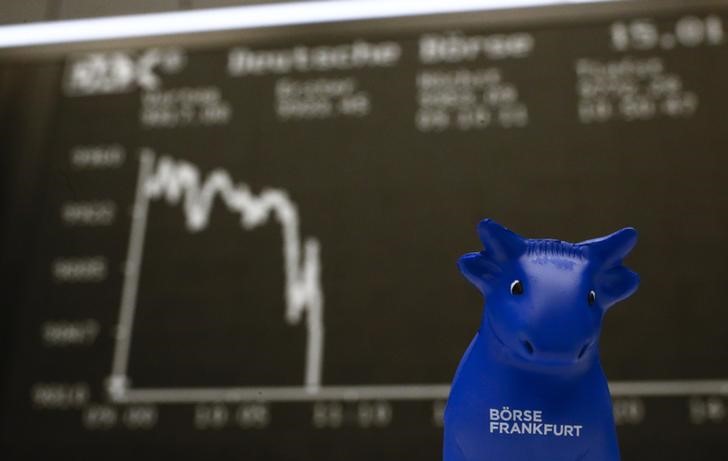Investing.com - European stock markets slipped lower Tuesday, amid caution ahead of the European Central Bank’s latest policy meeting later in the week.
At 03:20 ET (07:20 GMT), the DAX index in Germany traded 0.6% lower, the CAC 40 in France fell 0.6% and the FTSE 100 in the U.K. dropped 0.5%.
ECB meeting looms large
European equities rose for the third straight session on Monday, but a degree of nervousness has since set in ahead of Thursday’s ECB meeting.
An interest rate cut of 25 basis points from record-high levels by the region’s central bank is widely regarded as a near certainty, having been strongly signaled by ECB officials, but what follows remains up to debate given inflation is flaring up again.
Consumer prices in the 20 countries that share the euro rose by 2.6% year on year in May, according to data released on Friday, inching away from the ECB's 2% target after increases of 2.4% in the previous two months.
There’s little in the way of major regional economic data Tuesday, with German unemployment the only eurozone data of note due.
Across the pond, the focus will be on a key labor market reading later in the session – the monthly JOLTS report – which is forecast to show job openings sinking to deeper three-year lows.
This comes before Friday’s widely-anticipated payrolls report, and then next week’s Fed policy-setting meeting.
GSK stabilizes after cancer setback
In corporate news, GSK plc (LON:GSK) stock rose 0.1%, stabilizing after dropping over 9% on Monday after a U.S. judge allowed thousands of lawsuits alleging its discontinued heartburn drug Zantac caused cancer, to proceed, in a blow for the British drugmaker.
Crude falls after OPEC+ meeting
Crude prices fell Tuesday, extending the previous session losses to four-month lows after a group of major producers signaled an increase in supply later this year.
By 03:20 ET, the U.S. crude futures (WTI) traded 1.6% lower at $73.00 per barrel, while the Brent contract dropped 1.3% to $77.36 per barrel.
Both contracts slid over 3% on Monday, and were at their lowest level since early-February.
The Organization of the Petroleum Exporting Countries and allies, known as OPEC+, on Sunday agreed to extend most of their oil output cuts into 2025 but left room for voluntary cuts from eight members to be gradually unwound from October onward.
Sentiment was also hit by weak purchasing managers index data from both the U.S. and China, the two biggest economies in the world.
